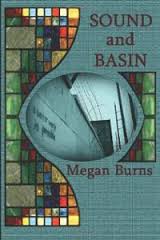Read John Smolens’ “Possession(s)” in our February 2014 issue, and when you can’t get it out of your head, see below:
Interview by Diana Clarke
1. The structure of “Possession(s)”—block text that is both a story and a how-to for surviving personal pain (the death of the narrator’s wife, in this case)—reminded me a lot of Jamaica Kincaid’s story “Girl.” In “Girl,” Kincaid uses the same kind of overwhelming text-block to convey the constraining and contradictory messages her young narrator receives about being a girl and growing into a woman. Do you see yourself writing into (or around, through, etc) cultural messages about mourning (i.e. what’s acceptable, how we should do it) and/or masculinity? How?
“Girl” is a brilliant story. Of course I can’t speak for Jamaica Kincaid, but I wouldn’t be surprised if that story didn’t just come to her all of a piece. What’s important is the story feels that way. That’s how it was for me while writing “Possession(s)”: it’s as though the story has always been there and you’re just fortunate to be tuned in to the right wave-length to pick it up. Carolyn Forché’s “The Colonel” has similar attributes.
Mourning is a good word. It rolls out softly; I even like the way it’s spelled, containing its own urn. What is mourning? It’s not just keening; it’s not just visible and audible responses to death. The great irony of Albert Camus’ The Stranger is that Meursault, when put on trial for murder, is found guilty largely because he did not sufficiently display remorse over his mother’s death. To not appear to mourn properly can be perceived as a most egregious cultural slight, not just an error in deportment but an insult, because it suggests a lack of respect, not just for the dead, but for those who have felt compelled to mourn in what society considers the proper, acceptable fashion. Continue reading
![[PANK]](https://pankmagazine.com/wp-content/themes/pank/assets/images/pank-logo-large.png)

